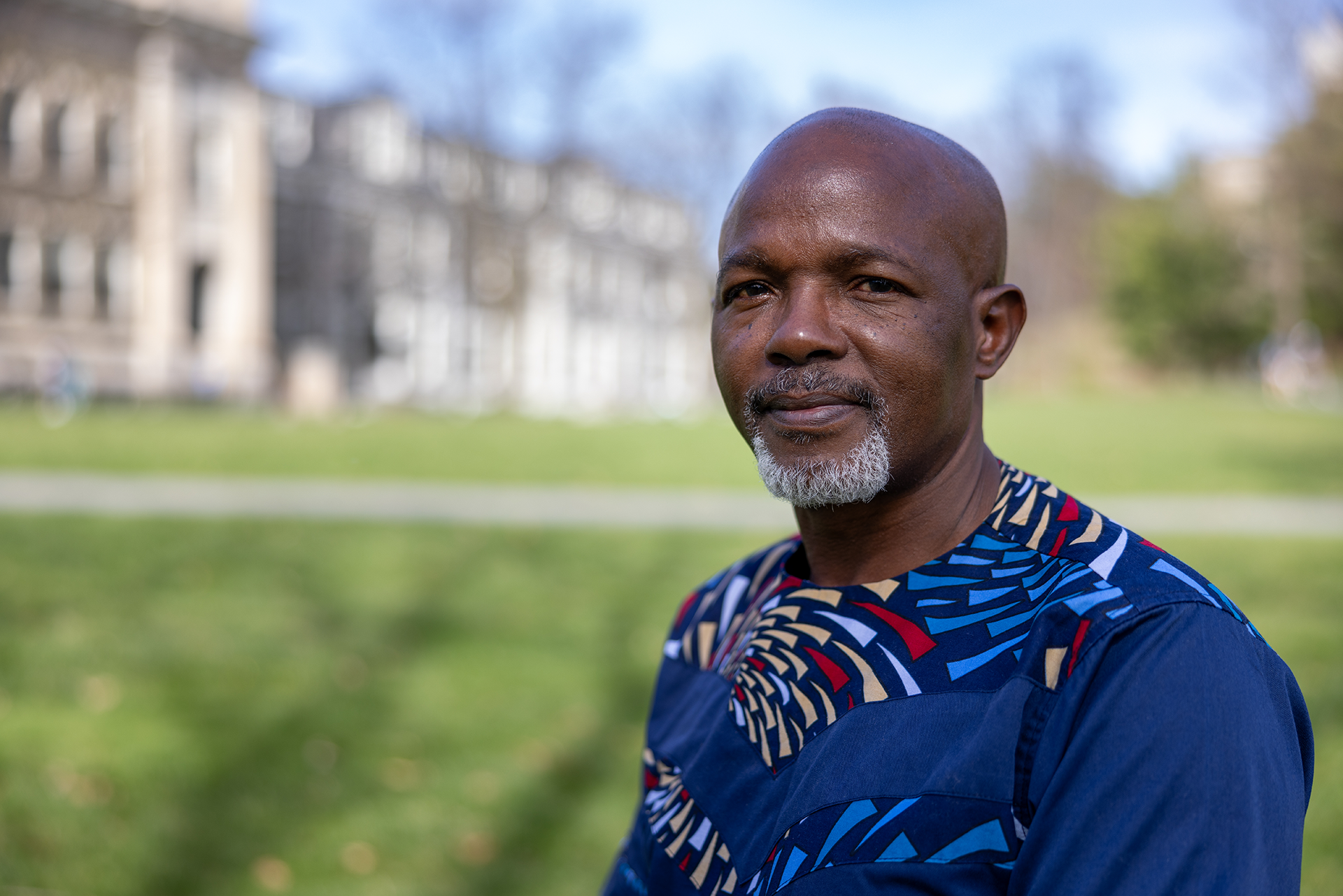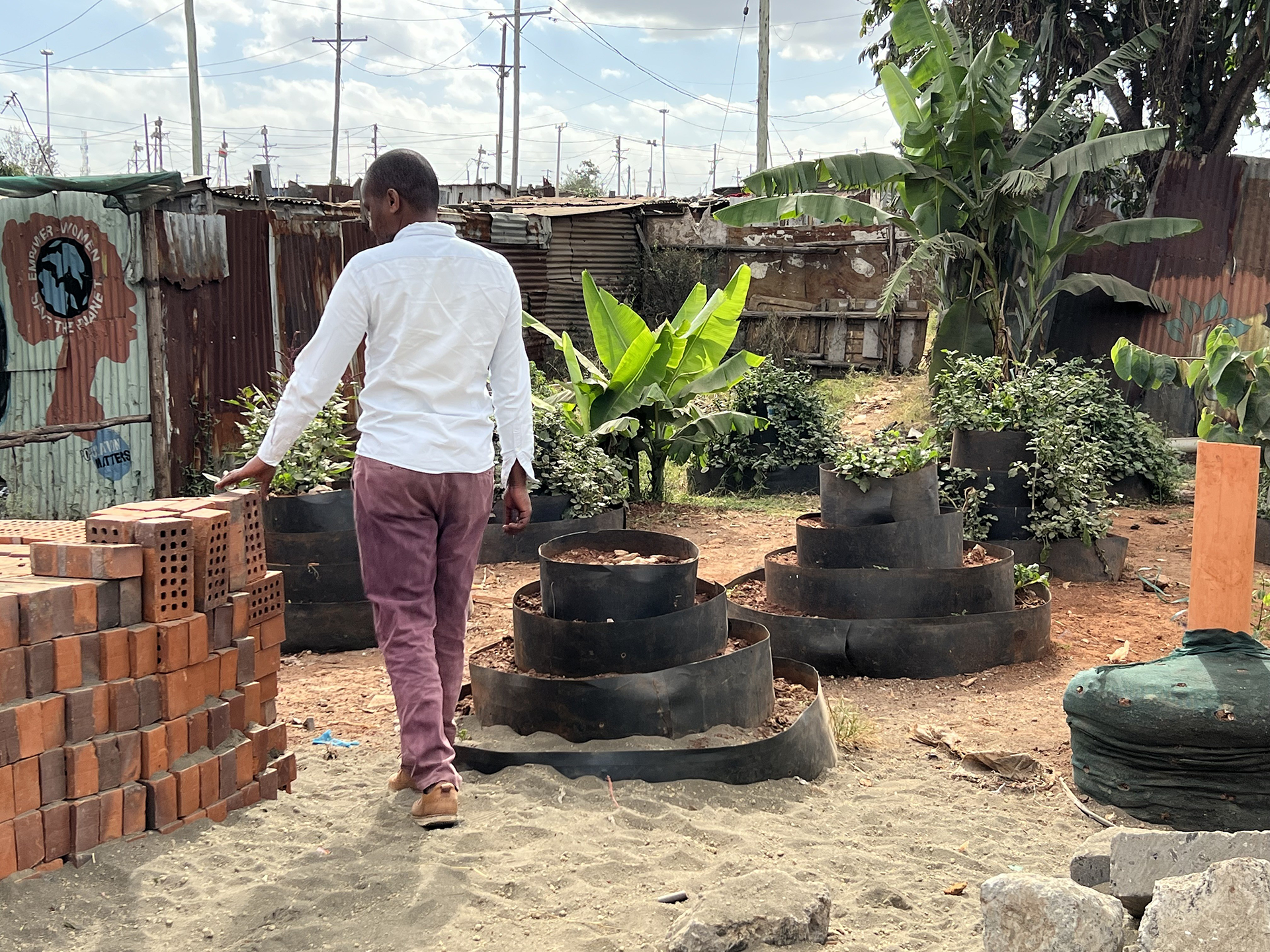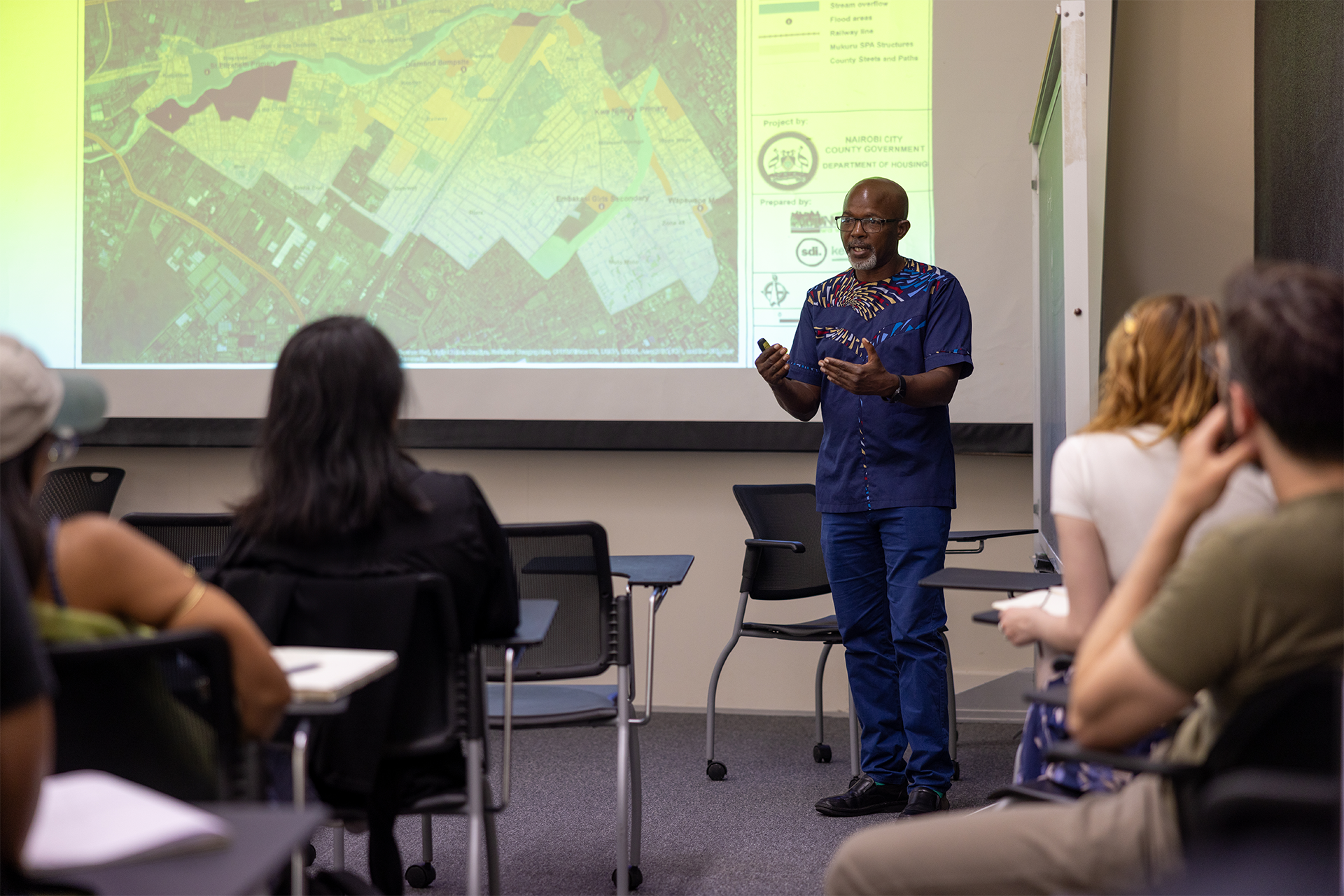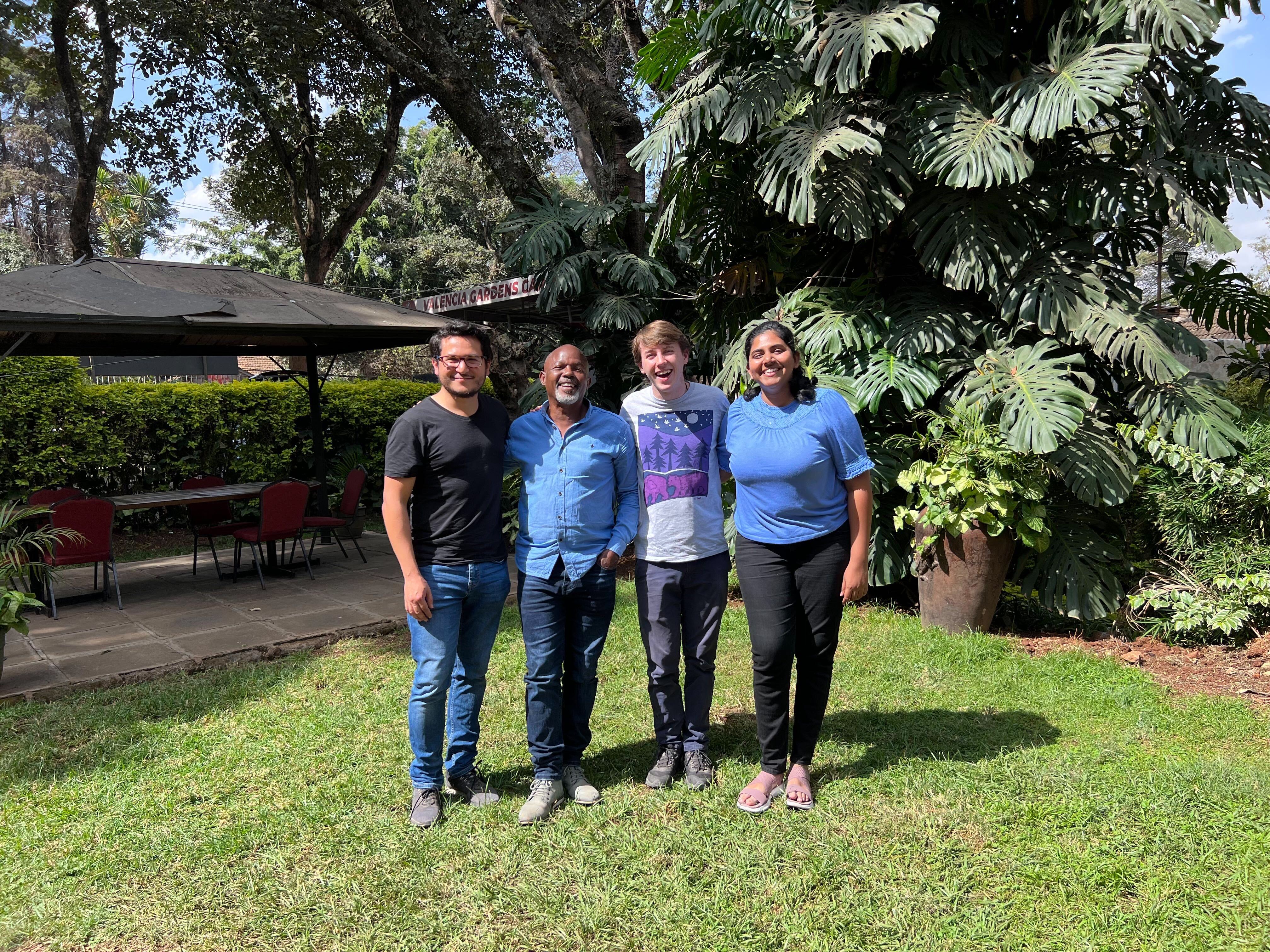In Partnership: Supporting Informal Settlement Upgrading from Within
This April, the Cornell Mui Ho Center for Cities welcomes Joseph Kimani, Executive Director of Slum Dwellers International–Kenya, to campus to share conversation and learning as both organizations seek to support informal settlement residents in their efforts to achieve increased housing security and equitable access to urban services.

Joseph Kimani, Executive Director of Slum Dwellers International–Kenya. Anson Wigner / AAP
The numbers are staggering. According to a UN-Habitat report, more than 1 billion people worldwide lived in slums or informal settlements in 2020, and left unchecked that number is expected to triple in the coming decades. Attracted by economic activity, the population of cities is rapidly increasing, but many urban areas — particularly in Central and Southern Asia, Eastern and South-Eastern Asia, and sub-Saharan Africa — are not equipped to provide adequate affordable housing and the infrastructure to support such growth. The informal settlements that arise in response struggle to meet these needs and their residents face housing insecurity and a lack of basic services (including sanitation and transportation), as well as polluted air and increased climate and disaster risk.
In 1996, Slum Dwellers International (SDI) began establishing a network of organizations that support community-led settlement upgrading. SDI is now active in some 400 cities across 36 countries. Joseph Kimani, Executive Director of Slum Dwellers International–Kenya, has extensive experience leading community organizing and public participation in project planning — the backbone of SDI's work "to transform slums into resilient neighborhoods and inclusive cities by collectively driving a women-led, bottom-up change agenda for securing tenure, and increasing access to basic services, housing, and livelihoods." This month Kimani spends three weeks in Ithaca at the invitation of the Cornell Mui Ho Center for Cities in order to share knowledge and deepen the collaborative work between the two organizations.

An example of a community-driven effort to green public spaces in informal settlements. image / Victoria A. Beard
Equitable Access
Kimani explains that while it is the government's constitutional duty to ensure citizens have access to adequate and quality social, economic, and environmentally friendly services, slums and low-income areas are often not prioritized for such development. And even when they are considered, the state agencies do not involve the communities themselves in decision making, making the implementation of any well-meaning project difficult. SDI's community-first working methods turn those challenges upside down.
"SDI's approach to urban development and transformation is unique since it is based on the values of inclusivity, movement building, and equity. In order to achieve this, SDI–Kenya provides and mobilizes technical support while Muungano (Federation of Slum Dwellers) sets the agenda," Kimani notes, stressing the importance of the NGO's work being led by "the movement" rather than the reverse for the highest-impact outcomes. "Working with the Center for Cities is strengthening this approach. SDI–Kenya and Muungano seek to consolidate our experience to inform new knowledge for students while we provide a learning platform for the generation of new ideas. In other words, we deposit our experience within the university to further research while at the same time creating a platform for new learning and conversion of our work into theoretical knowledge and policy for global influence."

Kimani speaks to CRP Assistant Professor Ding Fei's International Institutions class, sharing the history and impact of SDI's work in Kenya. Anson Wigner / AAP
An example of this learned experience is the wide-ranging impact of SDI's Know Your City campaign, which includes community-collected data drawn from over 5,000 slums in more than 18 countries across the Global South. This resident-gathered information now serves as a powerful and proven self-advocacy tool that quantitatively illustrates essential needs and interconnected urban challenges, quickly educating government representatives and planning personnel.
Partners in Planning
SDI's philosophies are in deep alignment with the Center for Cities' Just and Equitable Cities initiative, under which the partnership falls. Elements of this work include sending two Cornell AAP student interns to work with SDI in Nairobi for ten weeks over the summer and supporting SDI staff residencies as "reflective practitioners" at Cornell. Upcoming collaborative activities also include exploring how to co-design and implement a circular solid waste management model based on data collected from informal waste pickers and, during the fall 2024 semester, Architecture Assistant Professor Felix Heisel will co-teach a studio course with faculty from the University of Nairobi and SDI–Kenya that examines the challenges of solid waste management in informal settlements.
"The center is interested in having a positive impact working with coalitions that are committed to tackling our most wicked and entrenched urban problems," explains City and Regional Planning Professor Victoria A. Beard, Director of the Cornell Mui Ho Center for Cities. "I have tremendous respect for SDI as an organization and their work on the ground. We have been building our partnership with SDI slowly and thoughtfully, step by step, over several years. SDI is one of the most important civil society organizations working with slum dwellers and informal settlement residents across diverse national contexts. They are committed to deep and meaningful community engagement and elevating the voice and power of informal residents to determine the types of neighborhoods and cities they want to live in."

A lunch celebration at the end of the student summer internship with SDI in Nairobi in 2023. From left: Carlos Lopez-Ortiz (Ph.D. CRP), Kimani, Cameron Howland (B.S. URS '26), and Madhumitha Vasu (M.R.P. '24). image / Victoria A. Beard
During his weeks on campus, Kimani will meet with faculty and staff across departments and colleges, make presentations to several classes, host discussion sessions, and speak with current students interested in the summer internship program.
Kimani sees his time at Cornell as providing "a strategic platform to champion our work and also evaluate the relevance of our experience in new knowledge formation. We hope to impress knowledge seekers to document our aspirations, actions, and achievements. This is our third engagement, and we believe it is strengthening our collaboration."
Learn more about the collaboration between the Center for Cities and SDI–Kenya, including the student summer internship opportunity.







